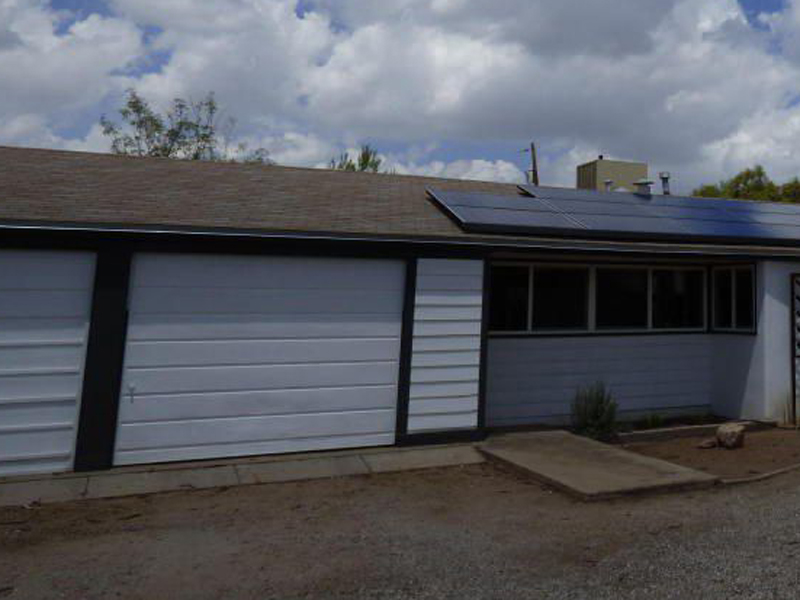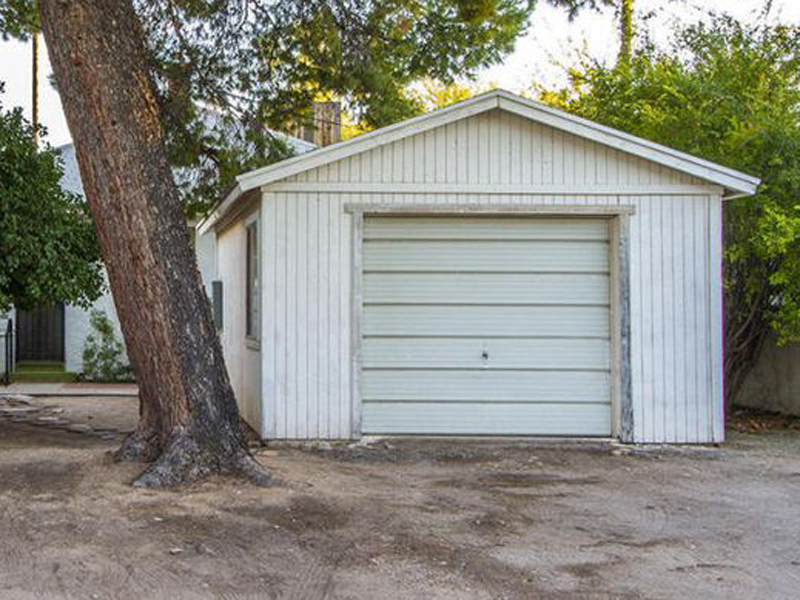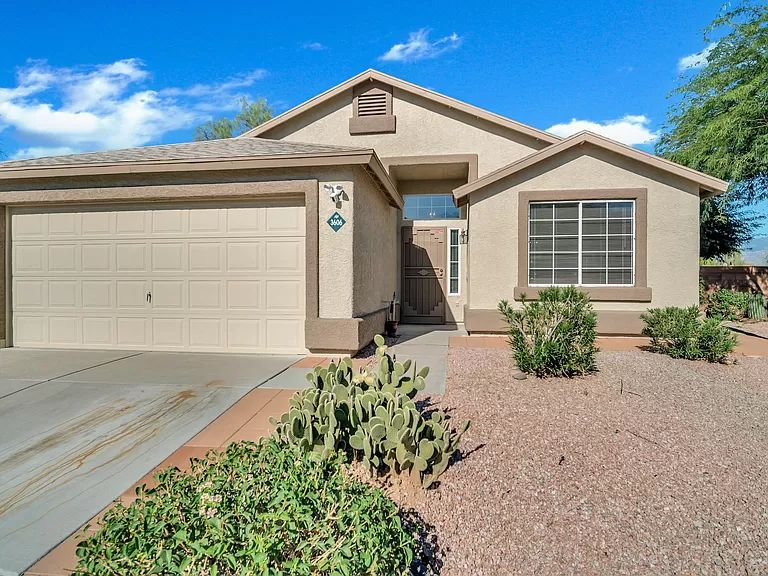Garage Door Breakdown - How to Get It Working Again
Is Your Garage Door Stuck? Right here's What to Do Initial
When your garage door will not open up, begin with these essential security checks prior to attempting any type of repair services. First, make sure no person is standing near the door and that cars are clear of the opening. Try to find evident signs of damages like damaged panels, curved tracks, or hanging cables. If you see a snapped springtime or seriously damaged elements, stop instantly and call a professional—-- these repair work call for customized devices and know-how to take care of safely.

Check These 6 Things Before Calling a Specialist
Prior to presuming you require pricey repair services, run through this quick analysis list that resolves most garage door troubles:
-
Source of power: Validate the opener is connected in and the electrical outlet is functioning
-
Remote batteries: Change dead batteries in your push-button control
-
Manual lock: Examine if someone unintentionally involved the manual lock
-
Blockages: Search for debris blocking the door's course or sensing units
-
Emergency launch: Ensure the red emergency cable hasn't been pulled
-
Breaker: Verify the garage circuit hasn't stumbled
These easy checks deal with about 70% of garage door concerns without requiring expert treatment.
10 Usual Factors Your Garage Door Won't Open Up
Recognizing why your garage door opener isn't functioning assists you pick the right remedy. Below are one of the most regular reasons homeowners experience:
Dead remote batteries represent the simplest solution—-- when batteries die, the remote can't send out signals to the opener. Power outages or tripped breakers cut electricity to the motor. Busted springs avoid the door from raising properly and need instant expert interest. Sensor imbalance causes security systems to obstruct door procedure. Track blockages stop rollers from moving efficiently. Electric motor overload triggers automated shutoffs when the opener spots resistance. Limit button problems puzzle the opener concerning door position. Wire damage interrupts the training mechanism. Weather-related problems influence door motion during severe temperature levels. Part wear from age progressively decreases system performance.
Problem # 1: Dead Push-button Control Batteries
When your wall surface switch functions however your remote does not, dead batteries are generally the culprit. Most garage door remotes make use of either 3-volt lithium or 12-volt alkaline batteries. Eliminate the back cover of your remote and examine the battery type. Replace with fresh batteries and check the remote. If it still doesn't function, you might need to reprogram it to your opener. Consult your opener's handbook for details reprogramming guidelines, as the process differs by manufacturer.
Issue # 2: Power Supply Issues
Garage door power issues commonly stem from loose links or stumbled circuits. Check that the opener is strongly connected into its outlet—-- resonance can loosen up links over time. Test the electrical outlet with another device to confirm it's working. Analyze your home's breaker box for tripped circuits, specifically if you have actually experienced storms or power changes. GFCI outlets might have tripped and require resetting. If the opener has power but won't react, the concern most likely lies in other places in the system.
Trouble # 3: Broken or Damaged Springs
Damaged garage door springs are among one of the most hazardous components to take care of. If you listen to a loud bang from your garage or notice the door feels incredibly heavy when trying to lift by hand, a springtime has likely snapped. Torsion springtimes run flat above the door, while extension springtimes remain on either side. Never ever attempt springtime repair work on your own—-- these elements keep incredible tension that can trigger severe injury or fatality. Professional replacement typically costs $150-$300 but ensures your security.
Problem # 4: Blocked Safety Sensing Units
Modern garage doors include safety sensors that protect against closure when things are identified. These sensors can quit the door from opening up if they're filthy, misaligned, or blocked by debris. Clean sensor lenses with a soft towel and make sure nothing obstructs the unnoticeable beam in between them. Examine that sensors are properly lined up—-- most have indication lights that reveal connection condition. Sensing unit problems frequently settle with basic cleaning and adjustment.
Trouble # 5: Track Obstructions or Damages
Garage door tracks guide rollers as the door moves up and down. Dirt, particles, old grease, or tiny items can jam the system. Evaluate tracks aesthetically and eliminate any kind of obstructions with a brush or towel. Try to find damages, bends, or warping that can restrain smooth operation. Small track changes are possible for useful house owners, but substantial damages needs professional repair work to prevent more issues or security threats.
Trouble # 6: Garage Door Opener Electric Motor Issues
When the garage door motor runs but the door doesn't relocate, numerous concerns could be liable. The motor may be strained and shutting off as a safety measure. Gear wear, particularly in older units, can prevent correct operation. Chain or belt drive issues impact power transmission. If you listen to unusual grinding, clicking, or humming noises, stop using the opener promptly. Electric motor fixings typically cost more than replacement, particularly for devices over one decade old.
Step-by-Step Do It Yourself Troubleshooting Overview
Follow this methodical method to garage door troubleshooting while focusing on safety and security throughout the procedure:
Action 1: Examine the wall surface button first. If it works however the remote does not, concentrate on remote issues. If neither works, check power supply.
Step 2: Take a look at the hand-operated launch cable. If it's been drawn, the opener is disengaged from the door. Push the cart back to reconnect.
Step 3: By hand check the door by disengaging the opener and trying to lift the door by hand. It ought to relocate smoothly and stay in area when half-open.
Tip 4: Check visible parts for damages, paying unique attention to springtimes, cables, and tracks.
Step 5: Check all security functions consisting of sensors, limit switches, and auto-reverse functions.
Action 6: Test various controls (remote, wall surface button, keypad) to isolate the problem resource.
Always put on shatterproof glass and work handwear covers when doing evaluations, and never attempt repair services on springtimes or high-tension parts.
When to Call a Professional vs. DIY Solutions

Understanding when to call a garage door expert versus trying do it yourself repairs protects both your safety and your wallet. Handle these issues on your own: dead remote batteries, power supply issues, minor track cleansing, sensor cleansing and alignment, and fundamental lubrication.
Never ever attempt these repair services yourself: springtime replacement or adjustment, cord repair services, major track adjustment, electric wiring problems, opener motor replacement, or any type of fixing involving high-tension components. Expert technicians have actually specialized tools, training, and insurance to deal with dangerous repair work securely.
Take into consideration repair work prices versus substitute expenses, especially for doors over 15 years of ages. garage door making grinding noise when opening Modern garage doors offer far better security functions, power efficiency, and integrity than older versions.
Emergency Situation Garage Door Solutions
When you're stuck with a garage door that will not open up and need immediate access, adhere to these emergency situation treatments:
Manual Procedure: Pull the red emergency situation release cable to disengage the opener. This enables hand-operated procedure but needs appropriate method to prevent injury. Raise the door gradually and uniformly, using leg muscles as opposed to your back. Most property doors evaluate 100-150 extra pounds, making them manageable for many grownups.
Short-lived Solutions: If the door opens manually but will not keep up, prop it open with sawhorses or clamps—-- never utilize your body or cars as assistances. For doors that won't close totally, guarantee the opening is protected if you need to leave.
Emergency situation Solution: Several garage door business provide 24/7 emergency situation service for scenarios including safety problems, entraped vehicles, or full system failings. While extra expensive than routine service calls, emergency fixings supply instant options when needed most.
Safety Warning: What NOT to Do
Garage door safety and security requires comprehending dangerous repair work that need to never ever be tried by property owners:
Never ever attempt to repair springs—-- they keep sufficient power to cause deadly injuries when they break or are poorly dealt with. Don't require a stuck door—-- this can damage the opener, tracks, or door panels, creating more expensive troubles. Stay clear of bypassing safety functions—-- sensing units and auto-reverse mechanisms stop serious injuries and home damage.
Do not ignore unusual sounds—-- grinding, scratching, or banging audios show troubles that aggravate over time. Never use the door if wires are frayed or broken—-- the door might fall suddenly. Do not attempt electrical repairs unless you're a certified electrical expert—-- garage door openers utilize both 120V house present and low-voltage control circuits.

Preventive Maintenance to Stay Clear Of Future Troubles
Routine garage door maintenance stops most usual problems and expands system life-span considerably:
Month-to-month Jobs: Aesthetic evaluation of all components, evaluating auto-reverse security functions, inspecting and tightening up hardware, and cleansing tracks and sensing units.
Quarterly Tasks: Oiling all relocating get rid of ideal garage door lubricating substance, screening guidebook operation, and examining weather sealing.
Yearly Tasks: Expert assessment and tune-up, spring change if needed, and opener upkeep consisting of belt or chain change.
Seasonal Tasks: Getting ready for weather extremes, examining insulation, and readjusting opener settings for temperature adjustments.
Constant upkeep costs far less than emergency situation fixings and makes sure reliable operation year-round.
Garage Door Won't Open Up Frequently Asked Questions
Why won't my garage door open with the remote however collaborates with the wall surface switch?
This generally indicates dead remote batteries, signal disturbance, or the need to reprogram the remote. Check batteries first, then consult your opener handbook for reprogramming instructions.
Can I manually open my garage door if the power is out?
Yes, pull the red emergency situation launch cable to disengage the opener, after that raise the door manually. Be prepared for the door's full weight and lift with proper strategy to prevent injury.
Just how do I know if my garage door springtime is broken?
Indications include a loud bang from the garage, the door sensation incredibly heavy when raising manually, visible voids in the springtime coils, or the door only opening a couple of inches before stopping.
Is it risk-free to use my garage door if it will not open all the way?
No, partial operation indicates mechanical problems that might aggravate all of a sudden. Stop using the door and have it inspected by a professional to avoid additional damage or injury.
What should I do if my garage door opens up yet won't shut?
Check safety and security sensors for obstructions or misalignment, check out the tracks for debris, and evaluate the auto-reverse feature. If these don't fix the trouble, speak with a professional.
How much does it set you back to fix a garage door that will not open up?
Expenses vary extensively depending on the issue: battery replacement ($5-$10), specialist diagnosis ($50-$100), spring substitute ($150-$300), or opener replacement ($200-$500).
Can weather influence my garage door's ability to open up?
Yes, extreme cold can thicken lubricating substances and impact metal elements, while heat can trigger expansion issues. Most troubles resolve as temperature levels stabilize, but relentless issues may need professional attention.
Why does my garage door open a few inches then quit?
This generally suggests busted springs, limit switch problems, or track blockages. The opener's safety attributes quit procedure when resistance is spotted, avoiding damages to the motor or door.
Get Specialist Aid for Complicated Issues
When do it yourself troubleshooting does not solve your garage door problems, professional technicians give the knowledge and tools needed for safe, lasting repair work. Qualified specialists identify problems accurately, use manufacturer-approved components, and provide warranties on their work.
Expert solutions include: comprehensive system inspections, spring and cable substitute, opener repair work and substitute, track placement and substitute, electrical troubleshooting, and emergency solution telephone calls.
What to anticipate: ahead of time prices, accredited and insured specialists, same-day service for many fixings, and follow-up maintenance referrals.
The majority of garage door firms supply free price quotes for major repair services and can offer prompt options for immediate problems impacting home security or automobile accessibility.
Getting Your Garage Door Working Again
A garage door that will not open does not need to wreck your day or damage your spending plan. Beginning with straightforward troubleshooting actions like checking power, changing batteries, and taking a look at for noticeable obstructions. Numerous problems have fast DIY solutions that restore regular procedure within mins.
Nevertheless, acknowledge when specialist assistance is needed—-- especially for spring-related problems, electrical issues, or facility mechanical failures. Attempting hazardous repair services yourself risks major injury and typically creates much more expensive troubles.
Routine maintenance avoids most garage door concerns and guarantees reliable procedure for years ahead. When troubles do occur, address them quickly to avoid more costly repairs and preserve your home's security and benefit. Whether you need an easy battery substitute or full system overhaul, remedies exist to get your garage door working smoothly once more.